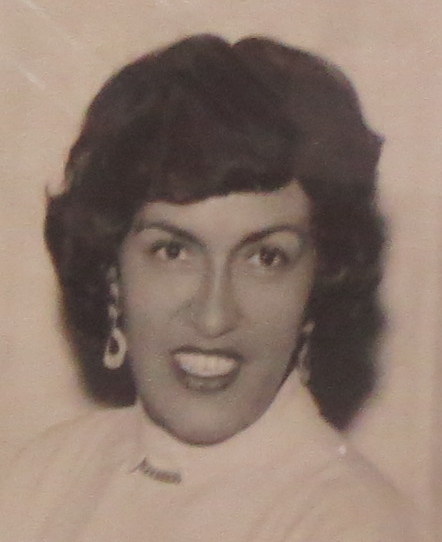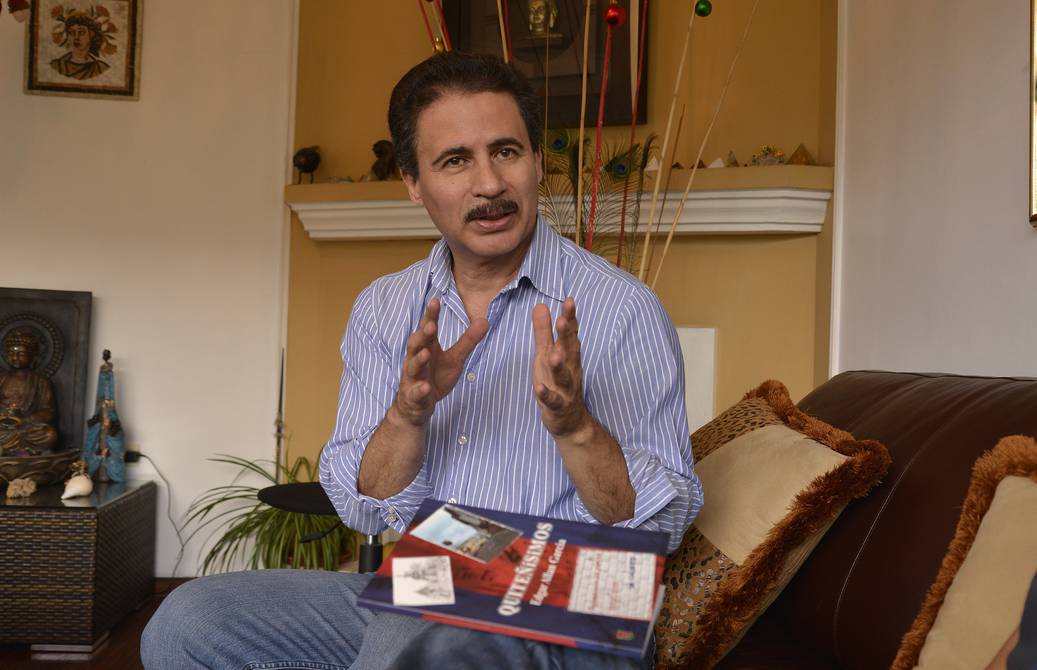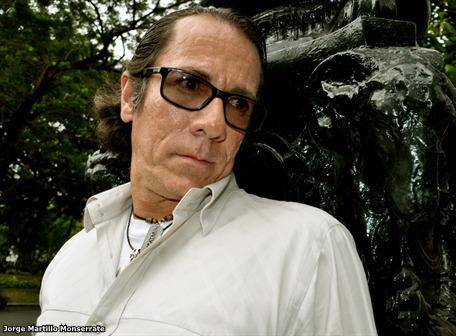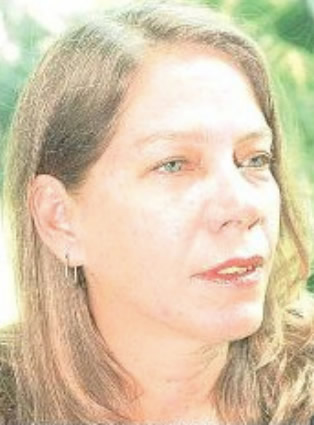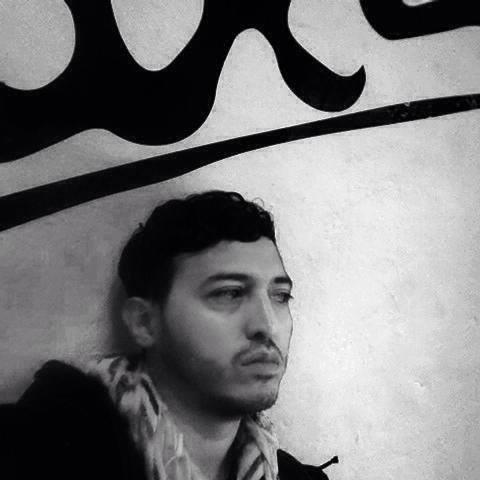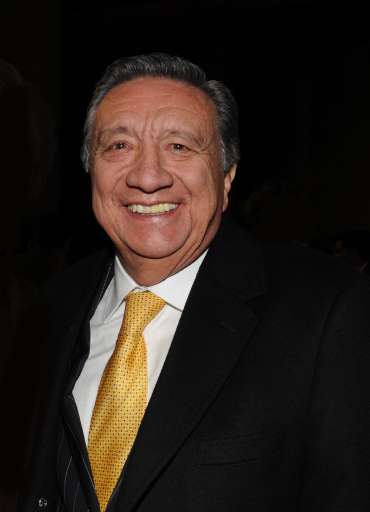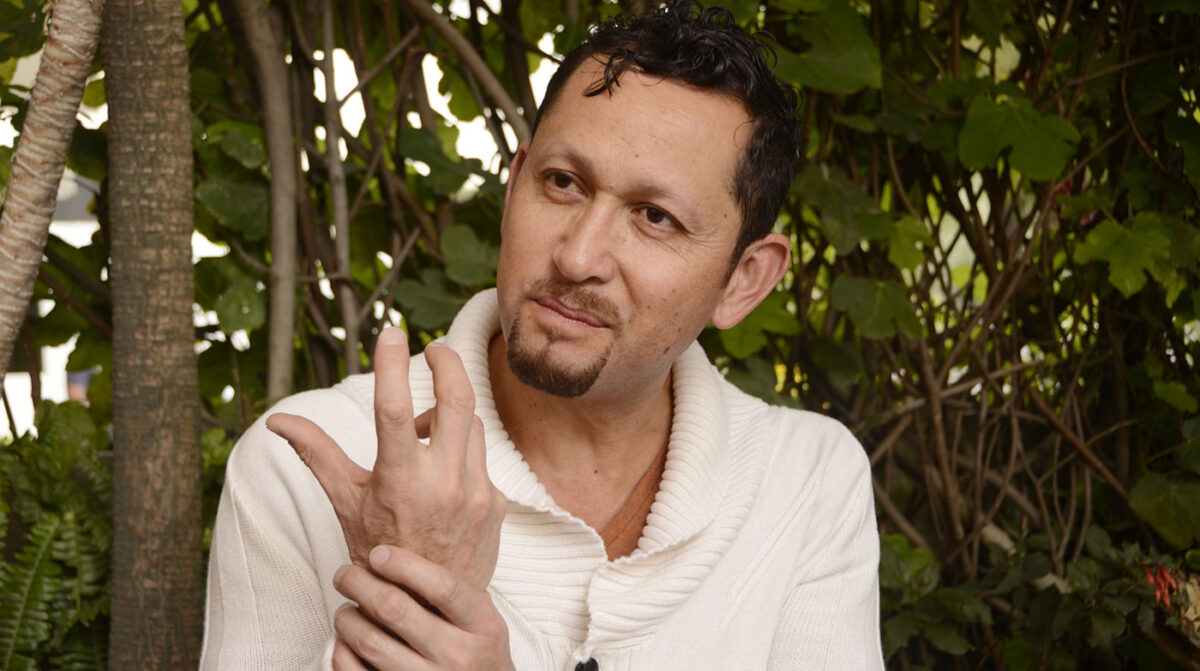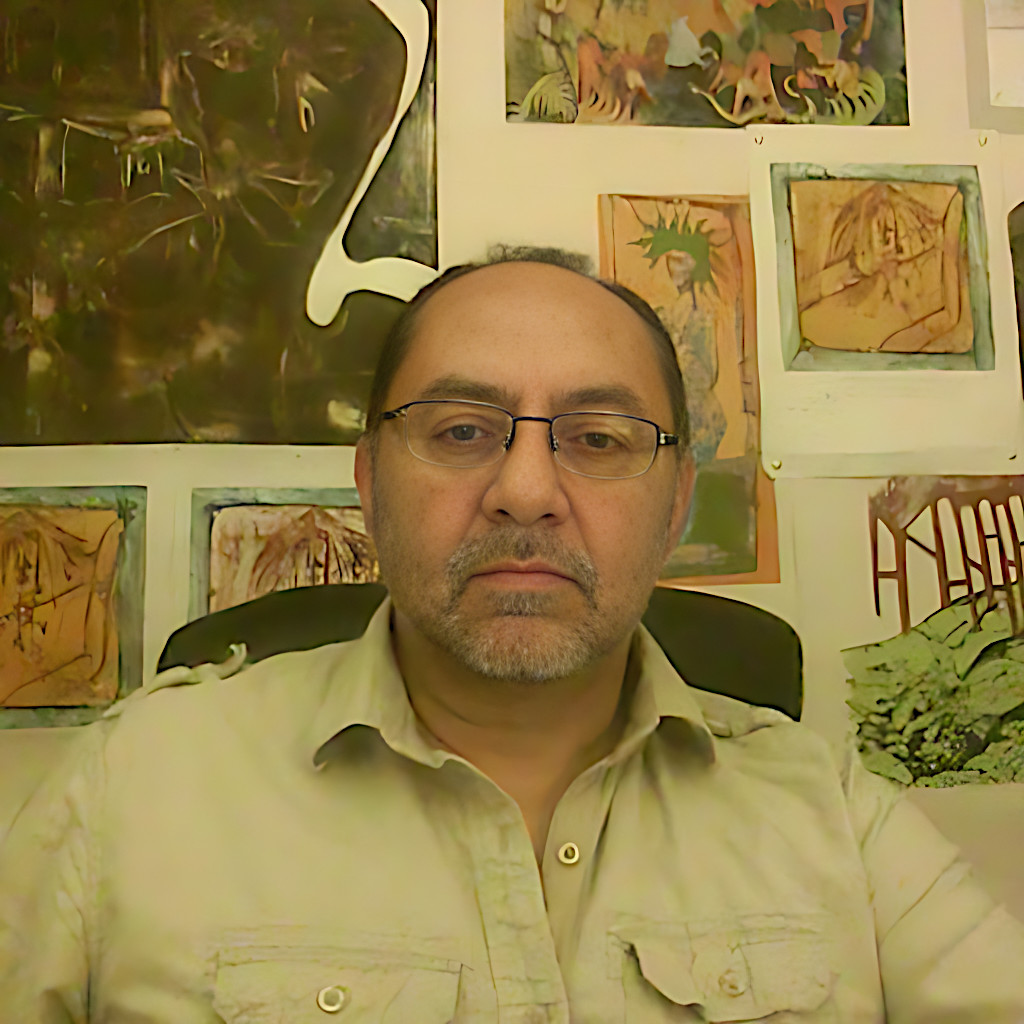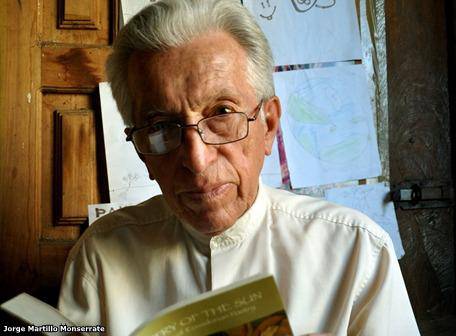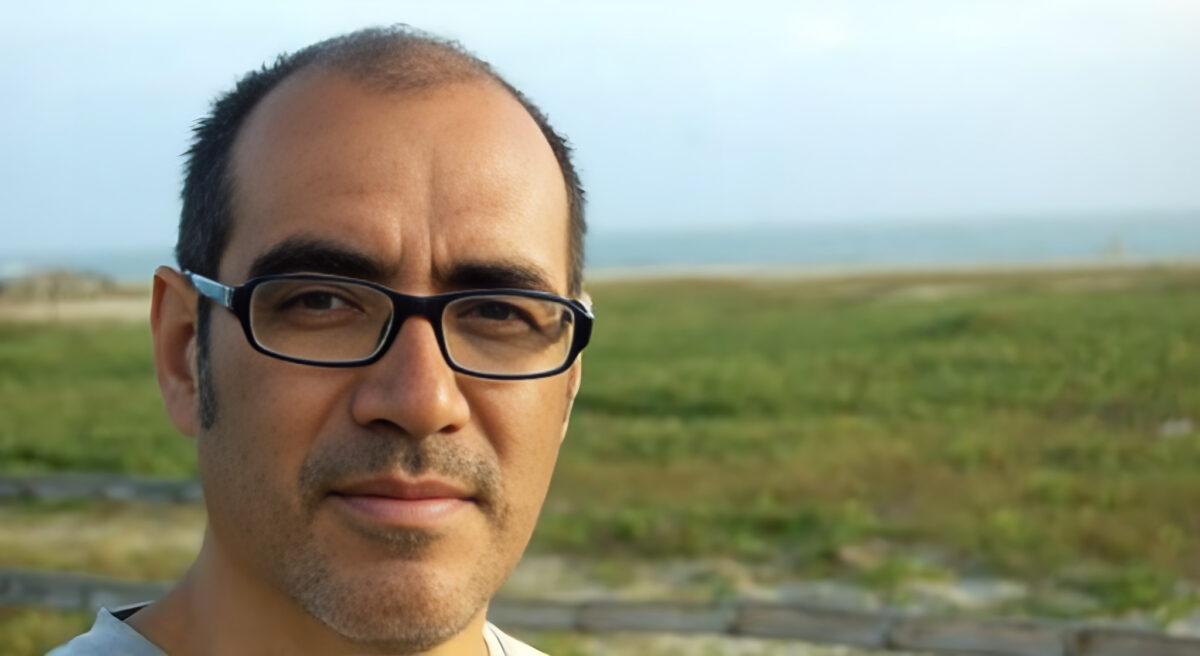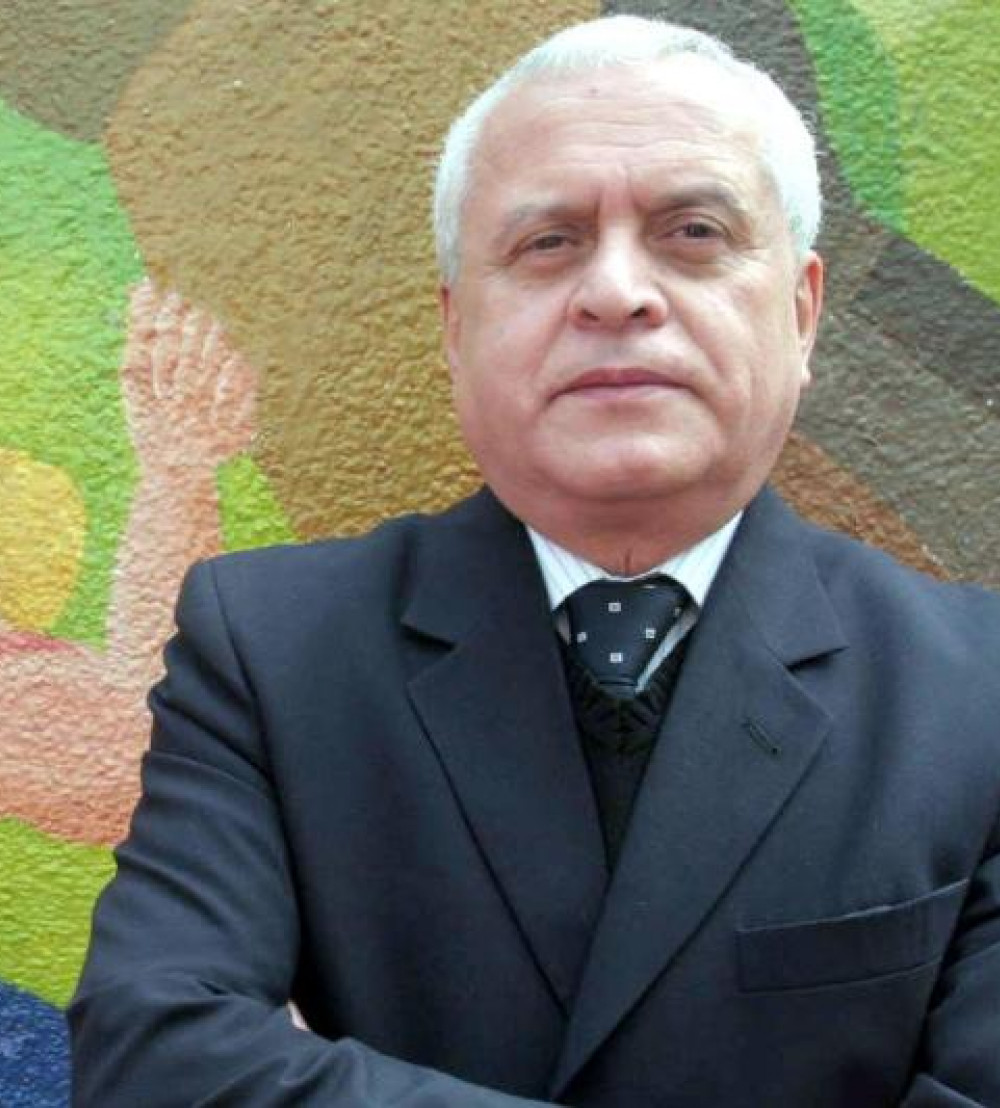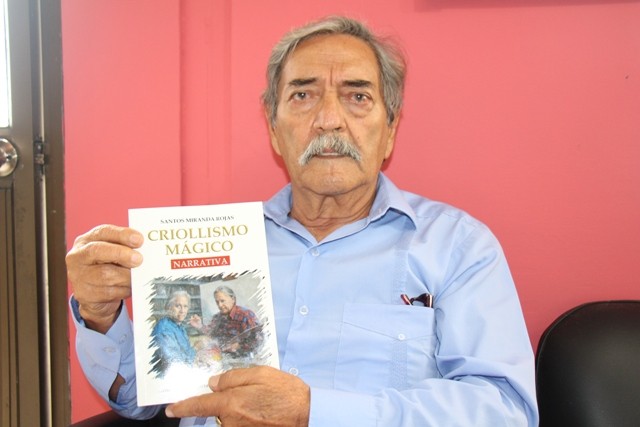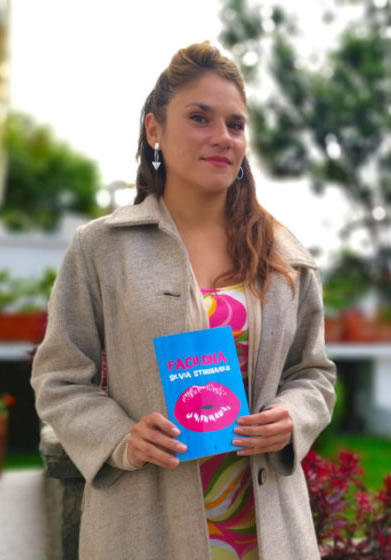Eugenia Tinajero Martínez (Quito, January 10, 1922 – April 6, 2009) was an Ecuadorian painter, university professor and writer. Tinajero Martínez hailed from a distinguished lineage, being the descendant of renowned Ecuadorian authors Luis A. Martínez and Juan Leon Mera. Her best-known literary work is “Leyendas indígenas” (1954), a collection of stories that focus on the Indian motif. She spent several years in the United States and was a respected professor at Harvard University, where she had previously studied. The majority of her artwork is held in both public and private collections in the Ecuadorian cities of Quito and Ambato.
Continue reading “Eugenia Tinajero Martínez”Category: Short story writers
Edgar Allan García
Edgar Allan García (Guayaquil, December 17, 1958) is an Ecuadorian writer and cultural promoter. He has 74 books to his credit, including short stories, poetry, novels, biography, nonfiction, essays and children’s literature. His works have been published in Ecuador, Spain, Peru, Mexico and Argentina. His book “Leyendas del Ecuador” is read in primary and secondary schools while his young adult novel “El rey del mundo” was chosen as part of Argentina’s national reading program. His poetry and short stories have also been included in several anthologies, and in 2010 he was included in Jaime García Padrino’s “Great Dictionary of Latin American Authors of Children’s and Youth Literature.” He also serves as the director of Ecuador’s José de la Cuadra National Book and Reading Plan. Some of his stories have been translated into French.
Continue reading “Edgar Allan García”Juan Carlos Cucalón
Juan Carlos Cucalón (Guayaquil, 1963) is an Ecuadorian short story writer and playwright. In 2007 he won first place in the Pablo Palacio Short Story Biennial with his story “Miedo a U2” [Fear of U2]. His book of short stories “Surcos obtusos” won the 2009 edition of the Luis Félix López National Literature Contest. Among the themes of the book are homoeroticism and masculinity in Latin America. In 2010, he premiered his play “Exododedosexos,” whose plot follows two transgender women named Malva Malabar and Simoné Bernadette who prepare to stage a play by Tenesse Williams. Cucalón is openly homosexual, and throughout his career he has published numerous stories featuring characters of various sexual orientations.
Continue reading “Juan Carlos Cucalón”Gilda Holst
Gilda Holst Molestina (Guayaquil, 1952 – Guayaquil, October 22, 2024) was an Ecuadorian writer and university professor. Known for her use of irony and humor, her works addressed themes of gender inequality and societal norms. She authored three notable short story collections: Más sin nombre que nunca (1989), Turba de signos (1995), and Bumerán (2006), as well as the novel Dar con ella (2000). Her work was included in several anthologies, including Cruel Fictions, Cruel Realities: Short Stories by Latin American Women Writers (1997), edited and translated by Kathy S. Leonard. In 2021, Editorial Cadáver Exquisito released her Obra completa (Complete Works). Holst was also a key figure in Ecuadorian literature, a professor at the Universidad Católica de Santiago de Guayaquil, and director of its School of Letters.
Continue reading “Gilda Holst”Luis Alberto Bravo
Luis Alberto Bravo Piña (Milagro, 1979) is an Ecuadorian writer, widely recognized for his novels, short stories, and poetry. His poetry collections, “Antropología pop” (2010) and “Utolands” (2011), have been particularly well-received. In 2011, Piña was named as one of the “25 best-kept literary secrets of Latin America” by the Guadalajara International Book Festival. His novelistic works include “Septiembre” (2013), “Hotel Bartleby” (2013), “El jardinero de los Rolling Stones” (2016), and “Crow” (2017). Bravo’s excellence in writing was further solidified in 2022 when he received the José Donoso Pareja Narrative Award for his short novel “Asia.” This innovative work skillfully interweaves historical events with fictional narrative, recounting a journey to Guayaquil, Ecuador, undertaken by the renowned American writer and artist William Burroughs in the 1950s.
Continue reading “Luis Alberto Bravo”Marco Antonio Rodríguez
Marco Antonio Rodríguez (Quito, 1941) is an Ecuadorian short story writer and essayist. He is a numerary member of the Ecuadorian Academy of Language. His most famous book is a short story collection entitled “Historia de un intruso” which consists of 10 short stories. In 1967, it won the best Spanish language book in the Leipzig International Book Fair (Germany), where other participants included Mario Vargas Llosa, Julio Cortázar, and Carlos Fuentes. He has also written over 20 books on visual arts. In 2020 he published a collection of all his stories in a book entitled “Todos mis cuentos,” which includes his previous collections: “Cuentos del rincón,” “Historia de un intruso,” “Un delfín y la luna,” and “Jaula.”
Continue reading “Marco Antonio Rodríguez”Jorge Rivadeneyra
Jorge Rivadeneyra Altamirano (Riobamba, 1930) is an Ecuadorian novelist, short story writer, essayist, columnist, and professor. His first novel, “Ya está amaneciendo,” appeared in 1957. He has written several books of short stories, including: “Encrucijada” (1960), “Ismata” (1993), and “Chacamandaca”(2015). Since 2002, he has lived in Caracas, Venezuela, where he has taught doctoral students at Venezuela’s Central University as a Professor of Social Sciences.
Continue reading “Jorge Rivadeneyra”Pedro Artieda Santacruz
Pedro Artieda Santacruz (Quito, 1964) is a psychologist, novelist, short story writer, journalist, essayist, literary critic, and professor. In 2003, he published a study titled “La homosexualidad masculina en la narrativa ecuatoriana” [Male Homosexuality in Ecuadorian Narrative], which received the Manuela Saénz Prize in 2004. His first novel, “Nadie sabe con certeza” [Nobody Knows For Sure], was published in 2001, followed by the psychological science fiction novel “La última pared roja” [The Last Red Wall]. In 2011, he released a collection of short stories titled “Lo oculto de la noche” [The Hidden Night], and in 2013, his third novel “Bajo el hábito” [Beneath the Habit] received an honorable mention at the Joaquín Gallegos Lara Prize for Best Novel of the Year. This novel tells the story of a transgender Franciscan living in a monastery in Quito. Pedro Artieda Santacruz has contributed to newspapers such as El Comercio and Hoy, and his articles on literature, cinema, and gender have been published in various magazines including Diners, El Búho, and Vistazo, among others.
Continue reading “Pedro Artieda Santacruz”Fernando Itúrburu
Fernando Itúrburu Rivadeneira (Guayaquil, 1960) is a writer, poet, essayist, literary critic, translator, and renowned scholar of Latin American literature. He is a Spanish professor in the Languages department at SUNY Plattsburgh where he has taught Latin American colonial and 20th century literatures, Cultural Studies, Women’s Studies, and Creative Writing. Often in collaboration with American professor Alexis Levitin, also of SUNY Plattsburgh, he has translated various Ecuadorian poets from Spanish to English. In 2009, they published “Tapestry of the Sun,” a bilingual anthology of Ecuadorian poets, which includes first-time translations of various Ecuadorian poets, largely from Guayaquil. Their translations of Ecuadorian poetry have also appeared in several literary journals. He was a member of the Guayaquil literary group Sicoseo. He has been a member of the House of Ecuadorian Culture since 1984.
Continue reading “Fernando Itúrburu”Hipólito Alvarado
Hipólito Alvarado Espinosa de los Monteros (Guayaquil, 1929 – Guayaquil, 2016) was an Ecuadorian writer, novelist, and poet. He published the short story book, “La segunda voz” (1975) and the poetry book “Más allá del tiempo y las imágenes” (1986). Some of his poems were translated into English and included in the anthology “Tapestry of the Sun. An Anthology of Ecuadorian poetry” (2009) by Alexis Levitin and Fernando Itúrburu. Hipólito Alvarado’s non-fiction books include: “Una celebridad llamada soya” (1985) and the first volume of “Cómo escribir un cuento” [How To Write A Story] (2001).
Continue reading “Hipólito Alvarado”Alfredo Noriega
Afredo Noriega Fernández (Quito, 1962) is an Ecuadorian writer, novelist, short story writer, and playwright. In the early 1980’s he was a member of the writing workshop of Miguel Donoso Pareja and founded the group La Pequeñalulupa. In 1985, he moved to Paris, France where he studied linguistics at the Sorbonne Nouvelle. He lived in Paris and Brussels for many years and now lives in Cardiff, United Kingdom. He has worked as a Spanish professor at universities. He is a highly-acclaimed author of noir novels. Some of his best-known work includes the 2002 novel “De que nada se sabe,” (translated into French as C’est dur de mourir au printemps), its 2010 sequel “Tan solo morir” (translated as Mourir, la belle affaire), and the trilogy’s final book, the 2019 novel “Eso si nunca.” The first book of this trilogy, “De que nada se sabe,” was adapted into the 2008 film “Cuando me toque a mí,” directed by Víctor Arregui, who collaborated with Noriega on the screenplay. He has published novels, short story collections, poetry collections, and plays. His stories have been included in several national and international anthologies.
Continue reading “Alfredo Noriega”Gabriela Cárdenas
Gabriela Cárdenas Monge (Quito) is an Ecuadorian writer, poet, graphic designer, and plastic artist. In 2018 she published a book titled “De poemas y relatos,” which combines poetry and prose with pictures of her artwork. In 2019, she won Fourth place in the The Best Christmas Stories contest hosted by the Hispanic Heritage Literature Foundation – Milibrohispano.org, which created a Spanish/English bilingual edition of the book which was published by Snow Fountain Press in Miami. In 2020, her story “La abuela y su guagua de pan” won a special mention in the international category of the contest Cuentale tu cuento a la Nota Latina, and was published in the anthology titled “33 Relatos Hispanos.” That same year, her poem “Distancia” was included in the poetry anthology “Siglemas 575.” Her poem “Terminamos, para siempre” was a finalist of the III Certamen de poesia – Hagamos art con palabras organized by the Art Emporium Gallery of Miami. She is currently working on the manuscript of her first novel.
Continue reading “Gabriela Cárdenas”Francisco Proaño Arandi
Francisco Proaño Arandi (Cuenca, January 20, 1944) is an Ecuadorian novelist, short story writer, essayist, and diplomat. In the 1960’s he was part of the literary group called Tzántzicos. In 1961, when he was 17 years old, he published a poetry book titled “Poesías.” However, since then he has dedicated himself solely to prose. In 1964 he started the magazine Z with Alejandro Moreano, and the magazine La bufanda del sol (1965-1966) with Ulises Estrella and Alejandro Moreano. In 1972, he published his first book of poems, “Historias de disecadores.” In 1984, he published his first novel, “Antiguas caras en el espejo,” which was critically acclaimed and was awarded the José Mejía Lequerica Prize by the Municipality of Quito for best prose work. In 1993, he published a second novel, “Del otro lado de las cosas.” In 2003 his short story book, “Historias del país fingido,” won the Joaquín Gallegos Lara Prize. In 2003, his third novel, “La razón y el presagio” was published. His fourth novel, “Tratado del amor clandestino,” was a finalist of the Rómulo Gallegos International Prize (2009, Caracas, Venezuela) and the José María Arguedas Prize from the Casa de las Américas (2010, Havana, Cuba). In 2009, his fifth novel “El sabor de la condena” also won the Joaquín Gallegos Lara Prize. From 2002 to 2003 he was the director of the House of Ecuadorian Culture’s magazine Letras del Ecuador. Although he was born in Cuenca, he has lived in Quito most of his life since that’s where his family is originally from.
Continue reading “Francisco Proaño Arandi”Santos Miranda Rojas
Santos Miranda Rojas (Guayaquil, September 12, 1940) is an Ecuadorian novelist and short story writer. He has lived in the city of Manta in the province of Manabi for many years and mostly identifies as Mantanese or Manabite. He was president of the Manabi chapter of the House of Ecuadorian Culture, president of the Manabi chapter of the Latin American Union of Writers, first president of the cultural group Alfaro Camina, director of the Sunday supplement Séptimo Día of the newspaper El Mercurio of Manta. Among his many accolades are the following: First Prize of the Oswaldo Castro Intriago Biennial Novel Award, presented by the House of Ecuadorian Culture, Manabi; the Intercollegiate Read Book Competition, sponsored by the Municipality of Quito; In 2000, his short story “El Niño Pintor” won silver at an international competition hosted by the government of Argentina, the Buenos Aires Lions Club, the Organization of American States, and the Spanish Embassy. Among his best known works is the novel, “La Casa del Nené” (2009) and the narrative book “Criollismo Mágico” (2014).
.
Continue reading “Santos Miranda Rojas”Silvia Stornaiolo
Silvia Stornaiolo Witt (Quito, 1980) is an Ecuadorian novelist and short story writer. She is the author of three short story collections and two novels, including: “Tanta Joroba” (2011) and “Tenga” (2012). Her latest book of short stories is “Facilona” (2020). Her father is the renowned painter Luigi Stornaiolo.
Continue reading “Silvia Stornaiolo”
